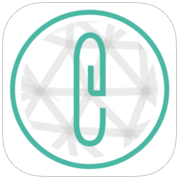Our chapter about „Cooperative Face-to-Face Learning with Connected Mobile Devices: The Future of Classroom Learning?“ got published as chapter of the book Mobile, Ubiquitous, and Pervasive Learning.
Abstract:
Communication and collaboration among peers influence learning outcomes in a positive way. Therefore our research work focuses on enhancing face-to-face group learning with the usage of mobile devices by developing a learning game for iPhone/iPad devices called MatheBingo. The app allows up to four learners to connect to each other through their mobile devices and learn together in a face-to-face setting. An initial evaluation in this field of research indicates the usefulness of such activities and how they uniquely motivate children to learn. It can be summarized that the connection of mobile devices is an important step towards the future of face-to-face classroom learning.
[Link to full chapter @ Springer]
[Link to Draft version @ ResearchGate]
Reference: Ebner, M., Schön, S., Khalil, H., Zuliani, B. (2016) Cooperative Face-to- Face Learning with Connected Mobile Devices: The Future of Classroom Learning? In: Mobile, Ubiquitous, and Pervasive Learning Fundaments, Applications, and Trends, Edition: 1st, Publisher: Springer, Editors: Alejandro Peña-Ayala, pp.121-138
 Im Rahmen unserer Vorlesung „Mobile Applications 2016“ wurde eine App zum Kennenlernen der Welt erstellt:
Im Rahmen unserer Vorlesung „Mobile Applications 2016“ wurde eine App zum Kennenlernen der Welt erstellt:


